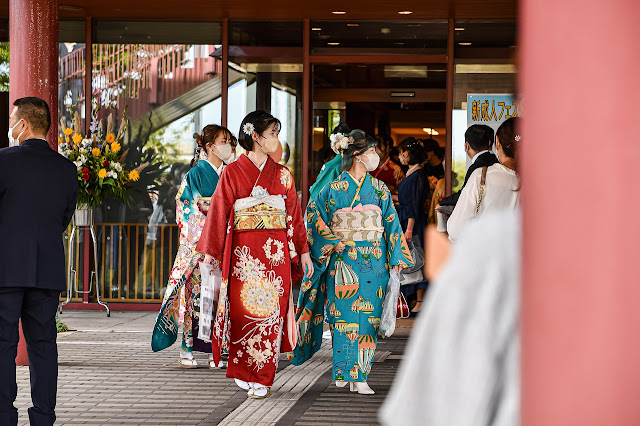In a world where fast food and convenience often dominate our eating habits, Japan stands out as a beacon of health and longevity. With a life expectancy of around 85 years, the Japanese culture offers profound insights into how mindful eating can enhance well-being and lead to a longer, healthier life. This practice is not merely about the food itself but encompasses the entire approach to eating, including the choices made, the environment, and the attitude towards meals.
The Principles of Mindful Eating
Mindful eating is rooted in the broader philosophy of mindfulness, which emphasizes being fully present and aware of one’s thoughts and feelings in the moment. In the context of eating, this means paying attention to the sensory experience of food—its colors, textures, flavors, and aromas—while also being aware of hunger cues and emotional triggers.
Japanese cuisine, with its emphasis on seasonal ingredients, presentation, and balance, naturally lends itself to mindful eating. Traditional Japanese meals often feature a variety of small dishes, which not only allows for a wider range of nutrients but also encourages diners to savor each bite, promoting a slower pace of eating. This contrasts sharply with the hurried meals often consumed in many Western cultures, where distractions abound and eating becomes an automatic activity.
Portion Control and the Concept of Hara Hachi Bu
One of the notable practices in Japanese dining is the principle of hara hachi bu, which translates to "eat until you are eight parts (out of ten) full." This concept encourages individuals to recognize their body’s signals of fullness and to stop eating before reaching complete satiety. By adhering to this guideline, individuals naturally consume fewer calories, which can help maintain a healthy weight and reduce the risk of lifestyle-related diseases.
Incorporating smaller portions into meals also fosters a greater appreciation for food. When served in smaller quantities, dishes are often more colorful and visually appealing, enhancing the overall dining experience. The practice encourages variety, allowing for a broader spectrum of nutrients while preventing the monotony of large servings.
The Role of Seasonal and Local Ingredients
Japanese cuisine places a strong emphasis on using fresh, seasonal, and locally sourced ingredients. This not only enhances the flavor and nutritional value of meals but also supports local economies and reduces the carbon footprint associated with transporting food over long distances. Seasonal eating connects individuals with their environment and encourages an appreciation for nature’s cycles, fostering a sense of harmony and balance.
Moreover, traditional Japanese dishes often include a variety of vegetables, fish, and whole grains, which are rich in essential nutrients. The inclusion of fermented foods, such as miso and pickles, adds probiotics that contribute to gut health. By focusing on wholesome ingredients and balanced meals, Japanese eating habits promote overall health and longevity.
The Importance of Social Connections
In Japan, meals are often enjoyed in the company of family and friends. The social aspect of dining plays a crucial role in the mindful eating experience. Shared meals create a sense of community, strengthen social bonds, and enhance the enjoyment of food. Eating together allows individuals to engage in conversations, share experiences, and create memories, all of which contribute to emotional well-being.
Research has shown that strong social connections are linked to increased longevity and improved health outcomes. In Japan, communal dining fosters a culture of togetherness, providing support and nurturing relationships that can have lasting benefits for individuals' mental and emotional health.
Eating Mindfully in a Fast-Paced World
In today's fast-paced society, adopting mindful eating habits can seem challenging. However, incorporating even small changes into daily routines can have a significant impact. Here are a few strategies inspired by Japanese practices to help individuals embrace mindful eating:
Slow Down: Take time to savor each bite. Put down utensils between bites and focus on the flavors and textures of the food. Aim to enjoy meals without distractions from screens or devices.
Practice Portion Control: Serve smaller portions and listen to your body's hunger signals. Avoid eating until completely full; instead, stop when you feel satisfied.
Embrace Seasonal Eating: Choose seasonal and local ingredients whenever possible. Experiment with new recipes that highlight fresh produce, encouraging variety in your diet.
Create a Dining Ritual: Establish mealtime routines that promote mindfulness, such as expressing gratitude before meals or eating together with family or friends.
Engage the Senses: Pay attention to the colors, smells, and textures of food. Take a moment to appreciate the meal's presentation and the effort that went into its preparation.
Conclusion
The Japanese approach to mindful eating offers valuable lessons for individuals seeking to improve their health and well-being. By embracing the principles of mindfulness, portion control, seasonal eating, and the social aspects of dining, we can cultivate a healthier relationship with food. As we navigate the challenges of modern life, these practices remind us to slow down, appreciate the nourishment we receive, and foster connections that enrich our lives. Ultimately, adopting these mindful eating habits may not only lead to improved health but also contribute to a longer, more fulfilling life.
- Get link
- X
- Other Apps
Labels
news- Get link
- X
- Other Apps


Comments
Post a Comment